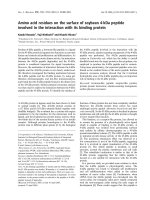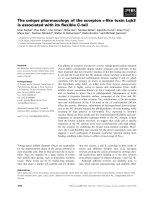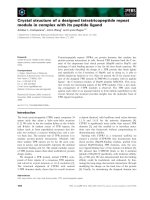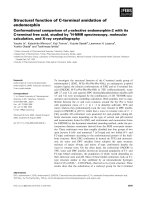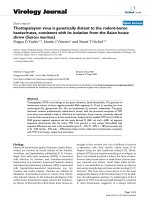Infinitive with its own subject
Bạn đang xem bản rút gọn của tài liệu. Xem và tải ngay bản đầy đủ của tài liệu tại đây (8.06 KB, 1 trang )
Infinitive with its own subject
The structure
for + noun / pronoun + infinitive
is very common in English. This structure is used when an
infinitive needs its own subject.
Compare:
I will be happy to do the housework. (= I will do the housework.)
I will be happy
for Ann to do
the housework. (= Ann will do the housework.)
My dream was to get a good job. (= I wanted to get a good job.)
My dream was
for him to get
a good job. (= I wanted him to get a good job.)
Note that we use object pronouns after
for.
I will be happy for them to help you. (NOT I will be happy for they to help you.)
This structure is common after adjectives expressing wishes and other personal feelings.
She is
anxious for her daughter to get
a good job.
He said that he would be
delighted for us to come
and stay.
For structures with preparatory
it
are also common.
It is
important for the meeting
to start at six.
Is it
necessary for him
to start work this week?
Note that this structure is not possible after
likely
and
probable
.
She will
probably
arrive this evening. OR It is
probable
that she will arrive this evening. (BUT NOT It is probable
for her to arrive this evening.)
Be first to know when grammar rules change! Sign up to our newsletter here: englishgrammar.org (It's free)
Powered by TCPDF (www.tcpdf.org)


